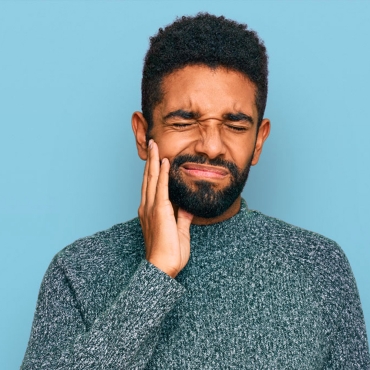If you’ve lost all of your natural teeth, whether from gum disease, tooth decay or injury, complete dentures can replace your missing teeth and your smile. Replacing missing teeth will benefit your appearance and your health.
The most affordable option to replace missing teeth are removable dentures. Because of the skill of the laboratory technicians and care put into the craftsmanship of the dentures, many people will not even realize you’re wearing them.
Without support from the denture, facial muscles sag, making a person look older. You’ll also find it harder to eat and speak things that people often take for granted until their natural teeth are lost.
Even if you no longer have your natural teeth, it’s still important to see your dentist regularly for an oral examination. The dentist will examine your mouth to check for any problem with the gum ridges, the tongue and the joints of the jaw, as well as screen for oral cancer.
There are three types of removable dentures: full dentures, overdentures, and partial dentures.
Full Denture
An immediate complete denture is inserted as soon as the remaining teeth are removed. The dentist takes measurements and makes models of the patients jaws during a preliminary visit. With immediate dentures, the denture wearer does not have to be without teeth during the healing period. Even if you wear full dentures, you still must take good care of your mouth. Brush your gums, tongue and palate every morning with a soft-bristled brush before you insert your dentures to stimulate circulation in your tissues and help remove plaque.
And even if you wear full dentures, it’s important to visit your dentist regularly to maintain your overall oral health and get early warning of serious issues such as oral cancer.
Your dentures were made to fit you precisely and, if they are cared for properly, they do not change shape. But you may sometimes find that they can become loose due to natural changes in the gums and bone supporting them. As the jawbone begins to shrink, so do the gums.
If you find your dentures no longer fit properly, see your dentist as soon as possible so adjustments can be made. Trying to change the fit of your dentures yourself can damage them and make them unrepairable so this would be a costly experiment!
Ill-fitting dentures repaired at home can also irritate the gums, tongue and cheeks.
In an emergency, you could use denture adhesives to keep the dentures stable until you are able to see the dentist.
Partials
Partial dentures are used when some natural teeth still remain. Partial dentures can be very stable, especially when supported by natural teeth on either side. And because they are removable, it’s easy to keep clean.
A removable partial denture or bridge usually consists of replacement teeth attached to gum-colored plastic base, which is connected by metal framework to hold the denture in place in the mouth. Partial dentures are used when one or more natural teeth remain in the upper or lower jaw. A fixed bridge replaces one or more teeth by placing crowns on the teeth on either side of the space and attaching artificial teeth to them. This “bridge” is then cemented into place.
Missing teeth can also speed up bone loss and put the health of your gums and remaining teeth at risk. In order to prevent these issues from occurring, it is important to replace missing teeth quickly.
Partial dentures are an excellent and cost effective solution if you need to replace multiple missing teeth. At your initial consultation, your dentist will let you know whether partial dentures can be an effective tooth replacement option for you.
Overdentures
People with multiple or all of their teeth missing typically have complete or partial dentures; this treatment option is called Overdentures.
Overdentures are replacement teeth retained by dental implants. Overdentures were developed to help both partial and fully edentulous patients regain a quality of life, which most likely has been missing since they lost their teeth.
Overdentures offer a variety of advantages as compared to conventional dentures. While some of these advantages are purely cosmetic, all of these can affect your quality of life, making you happier and healthier.
An implant-retained overdenture can help stop the deterioration of your natural facial contours. Keeping this bone alive and stimulated is the only way to halt the resorption that naturally occurs in areas where your natural teeth have been lost.



